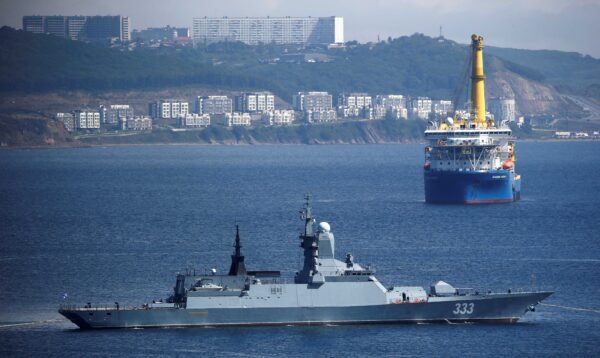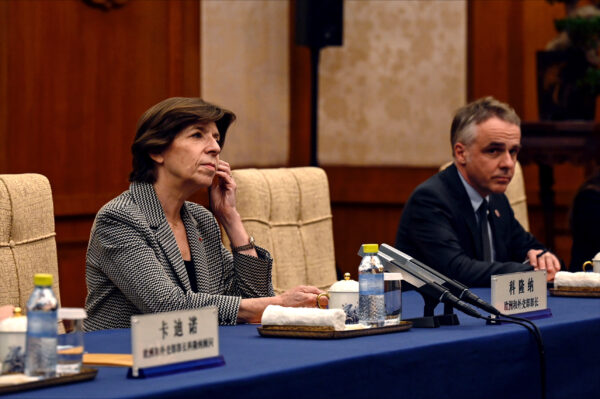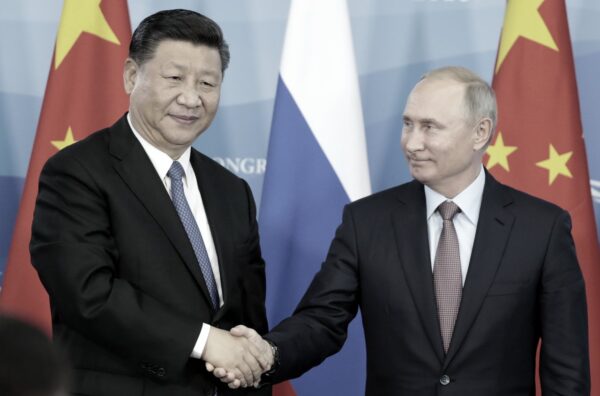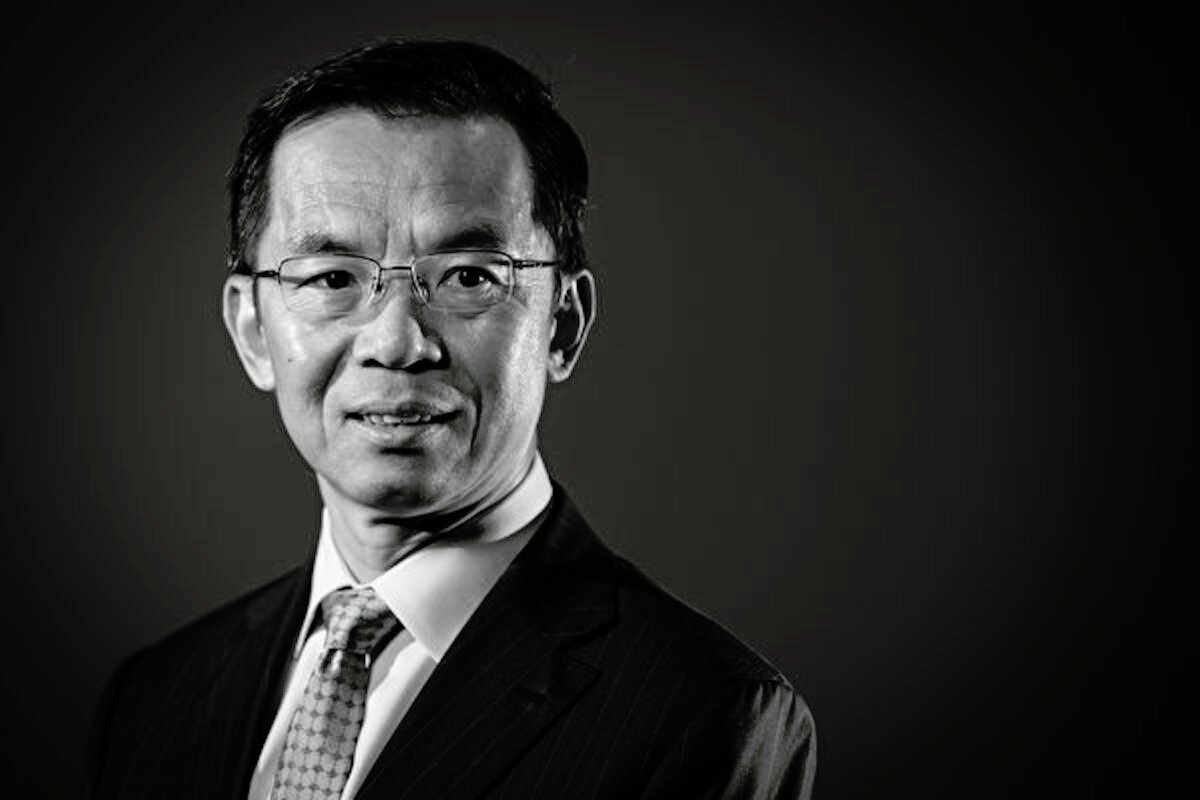China’s Ambassador to France Questions Sovereignty of Ex-Soviet States, Infuriating European Leaders
The Chinese communist regime’s ambassador to France publicly claimed on Friday that Crimea “belongs to Russia from the very beginning,” and that post-USSR republics “have no effective status” in international law, infuriating European leaders.
Lu Shaye, the Chinese regime’s “wolf warrior” diplomat who often makes aggressive and controversial remarks, was interviewed by French media on April 21. When asked about his position on whether Crimea is part of Ukraine, Lu said, “It depends on how you perceive the problem.”
When pressed by journalist Darius Rochebin, Lu said, “It’s not that simple,” and stated that Crimea “belongs to Russia from the very beginning.”
Furthermore, Lu denied the sovereignty of post-Soviet states.
“In international law, even these ex-Soviet Union countries do not have the status, the effective status, in international law, because there is no international agreement to materialize their status of a sovereign country,” Lu said.
Since the collapse of the Soviet Union’s communist empire in 1991, its former republics such as Ukraine, Estonia, Latvia, and Lithuania have become independent sovereign states. The three Baltic states are currently NATO and European Union members.
Lu’s remarks were met with strong pushback from European leaders.
Ukraine’s ambassador to France Vadym Omelchenko responded on Twitter saying there is “no room for ambiguity, Crimea is Ukraine” on April 22.
Soit il y a des problèmes évidents avec la géographie.
Soit de telles déclarations sont en désaccord avec la position de la capitale🇨🇳« sur les efforts en faveur du retour de la paix en Ukraine sur la base du droit international et des buts et principes de la Charte de l’ONU». https://t.co/CnnxXxTT7Y— Vadym Omelchenko (@OmelchenkoVadym) April 22, 2023
He also drew parallels between China’s own territorial issues it has with Russia, “Test question ‘Who owns Crimea?’ is revealing as usual. Next time, it will be good to expand ‘Who owns Vladivostok?’” Omelchenko challenged in the post.
Vladivostok, known by China as Yongmingcheng, had been China’s territory and in official Chinese maps since the 13th century. Later, the port city was called Hǎishēnwǎi to this day alongside the Russian imperial name of Vladivostok.
The city and the land surrounding it is the homeland of China’s ruling Manchurian ethnicity of the Qing Dynasty. However, it was annexed by the Tsarist Russian empire in 1860 after China was defeated by the British and the French during the Second Opium war.

Former Chinese Communist Party (CCP) leader Jiang Zemin signed a treaty with Russian President Vladamir Putin in 2001, titled “Sino-Russian Treaty of Good-Neighborliness, Friendship and Cooperation.”
In the treaty, Jiang officially acknowledged the Chinese territories annexed by Russia since the imperial era to be Russia’s, permanently giving at least 1.5 million square kilometers of territory that belonged to China to Russia, including Wulianghai, Sakhalin Island, and Vladivostok (Hǎishēnwǎi)—the equivalent of dozens of Taiwans.
In recent years, there have been opposing voices in China against the CCP’s official stance on the territories ceded to Russia.
Omelchenko emphasized at the end of his post, “The Soviet empire no longer exists. History is moving forward.”
Baltic Countries Pushback
Antoine Bondaz, a China expert at the Paris-based think tank Foundation for Strategic Research, pointed out in a Twitter post that Lu’s remark “denies the very existence of countries like Ukraine, Lithuania, Estonia, Kazakhstan, etc.”
China’s ambassador to France unabashedly asserts that the former Soviet republics have « no effective status in international law » as « sovereign states » 🤯
He denies the very existence of countries like Ukraine, Lithuania, Estonia, Kazakhstan, etc. 😳
WTF?! https://t.co/SdysHEaSRD
— Antoine Bondaz (@AntoineBondaz) April 21, 2023
Estonia, Latvia, and Lithuania criticized Lu’s remarks and have demanded answers from Beijing.
Minister of Foreign Affairs of Latvia Edgars Rinkēvičs wrote on Twitter, “Remarks by the Chinese Ambassador in France concerning international law and sovereignty of nations are completely unacceptable. We expect explanation from the Chinese side and complete retraction of this statement.”
Remarks by the Chinese Ambassador in France concerning international law and sovereignty of nations are completely unacceptable. We expect explanation from the Chinese side and complete retraction of this statement https://t.co/S937uXJGWJ
— Edgars Rinkēvičs (@edgarsrinkevics) April 22, 2023
Lithuanian Foreign Minister Gabrielius Landsbergis responded on Twitter, “If anyone is still wondering why the Baltic States don’t trust China to ‘broker peace in Ukraine’, here’s a Chinese ambassador arguing that Crimea is Russian and our countries’ borders have no legal basis.”
Margus Tsahkna, Estonia’s foreign minister, told local media outlet Delfi that “it is sad that a representative of the People’s Republic of China holds such views. Such a position is incomprehensible.”
France responded on April 23 by stating its “full solidarity” with all the allied countries affected by Lu’s remarks, which had acquired their independence “after decades of oppression.”
“On Ukraine specifically, it was internationally recognized within borders including Crimea in 1991 by the entire international community, including China,” French foreign ministry spokesperson said.
On Sunday, almost 80 EU lawmakers, alongside the Inter-Parliamentary Alliance on China, sent a letter to France’s Minister for Europe and Foreign Affairs Catherine Colonna asking that the Chinese ambassador be declared persona non grata over his remarks.

“Ambassador Lu Shaye asserted publicly that former Soviet Republics lacked effective status in international law, arguing specifically that there is ‘no international agreement to materialise their status.’ Such comments go well beyond the boundaries of acceptable diplomatic discourse. This is wolf warrior activity at its worst and should not go unanswered,” the letter, which was published in Le Monde, said. “We call upon you to declare Ambassador Lu Shaye persona non grata immediately as a response to his completely unacceptable behaviour.”
“We hope you will take these steps to underscore France’s commitment to the central values which unite us not only in Europe but also with like-minded partners elsewhere,” it added.
Mixture of Soviet Union and Tsarist Russia
The CCP in China had long received backing from the Soviet Union. After the fall of the communist empire, the CCP has maintained close ties with Putin, the former Soviet secret police (KGB agent) turned ruler of Russia.
Both Beijing and Putin’s Russia share a common vision against the West led by the United States. Their “no limits” partnership was agreed to by the Russian and Chinese leaders in February 2022. The CCP has supported Russia’s war in Ukraine.

Gao Yusheng, former Chinese ambassador to Ukraine, pointed out recently at a forum that Putin’s foreign policy is “a mixture of the former Soviet Union and the Tsarist Empire.”
In his more than 30-year diplomatic career, Gao spent time stationed in the former Soviet Union and the countries that used to be Soviet member states.
He said that the core and primary direction of the Putin regime’s foreign policy has been to “see the former Soviet Union states as its exclusive sphere of influence, and to restore the empire through ‘unification’ dominated by Russia.”
Reuters contributed to this report.




